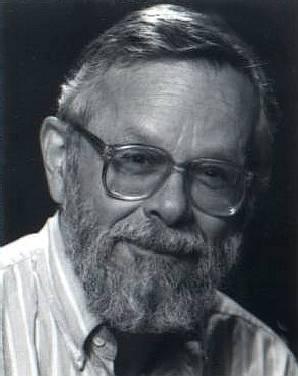Jerome Schneewind, scholar of the history of philosophy and professor emeritus in the William H. Miller III Department of Philosophy, died Jan. 8, at the age of 93.
"Jerry was deeply admired both for his groundbreaking work in the history of ethics and for his service to the field and to academia more generally. His broad sensibilities and wide-ranging curiosity had a lasting impact on his students and his colleagues at Johns Hopkins and elsewhere," said Steven Gross, professor and chair of the department.

Image caption: Jerome Schneewind
Image credit: World Biographical Encyclopedia Inc.
Serving as president of the American Philosophical Association's Eastern Division in 1995-96 and chair of the group's national board from 1999 to 2002, Schneewind was best known for his innovative research on the history of ethics, authoring and editing influential articles and volumes that still stand as definitive works. Sidgwick's Ethics and Victorian Moral Philosophy, published in 1977, was a historical study of how the English ethical philosopher Henry Sidgwick's arguments and conclusions represented rational developments of earlier thinkers' work, and his research on Kant shed new light on the background of the 18th-century philosopher's complex works on morality.
"His writings, particularly Sidgwick's Ethics and Victorian Moral Philosophy and The Invention of Autonomy, set the standard for work in the history of moral philosophy, placing major thinkers in moral philosophy in their broader cultural context," said Michael Williams, a professor in the department.
In addition to his scholarship, Schneewind was known for his teaching and mentorship, opening up worlds of philosophical thought to generations of undergraduate and graduate students and helping them find their way in the field. Along with the history of ethics, his teaching covered types of ethical theory, the British empiricists, Kant's ethics, and utopian thought.
"He knew how to organize the material in a very interesting way for undergrads. This material often doesn't connect with everyday life, but he was able to do that," said Peter Achinstein, a professor in the department.
Schneewind arrived at Johns Hopkins in 1981, serving as chair until 1991 and then continuing as professor until he was named emeritus in 2003. In 2000, the department organized a conference in his honor titled "Reading Autonomy."
Schneewind's personality was strong, his wit sharp, and his feet perpetually clad in sneakers. In a 2008 talk to the American Philosophical Association, he traced his interest in philosophical ethics to his childhood experiences of anti-Semitism, which he had difficulty squaring with a religion (Christianity) that described itself as rooted in morality. In the same lecture, he said that the assassination of Martin Luther King Jr. made him want to help address social and political issues, which soon led him to administrative roles where he worked to change curricula and improve teaching and hiring.
Prior to Hopkins, he taught at the University of Chicago, Princeton, Yale, the University of Pittsburgh (where he was dean of the College of Arts and Sciences from 1969 until 1973), Stanford, the University of Leicester, and Hunter College, CUNY (where he was provost from 1975 until 1981).
"He was a pioneering scholar in the history of ethics and an excellent teacher, but he was also a consummate administrator. He once said to me, 'Don't knock administration. You learn a lot from doing it, including about yourself.' He was right about that, as he was about many other things," said Richard Bett, professor in the department.
Schneewind earned a bachelor's degree from Cornell in 1951 and master's and doctorate degrees from Princeton in 1953 and 1957, respectively. From 1954 until 1956, he served in the U.S. Army Signal Corps. He was a fellow of the American Academy of Arts and Sciences and the Center for Advanced Study in the Behavioral Sciences, and held Mellon, Guggenheim, and National Endowment for the Humanities fellowships. He served in various roles in the national and eastern divisions of the American Philosophical Association, and on the Council for Philosophical Studies, the National Research Council, and the NEH.
Posted in Arts+Culture, Politics+Society
Tagged philosophy, obituary







